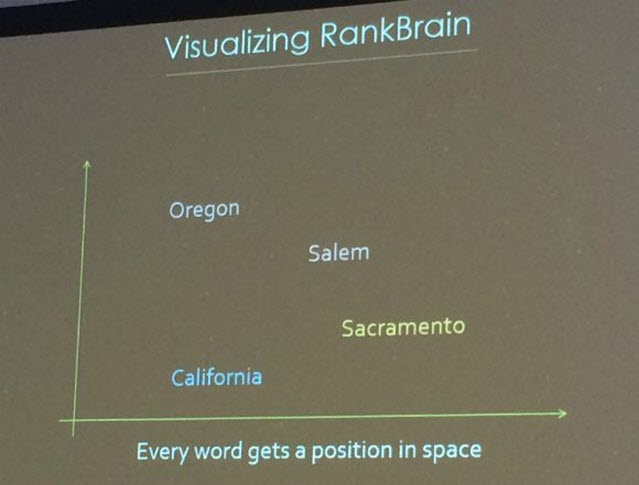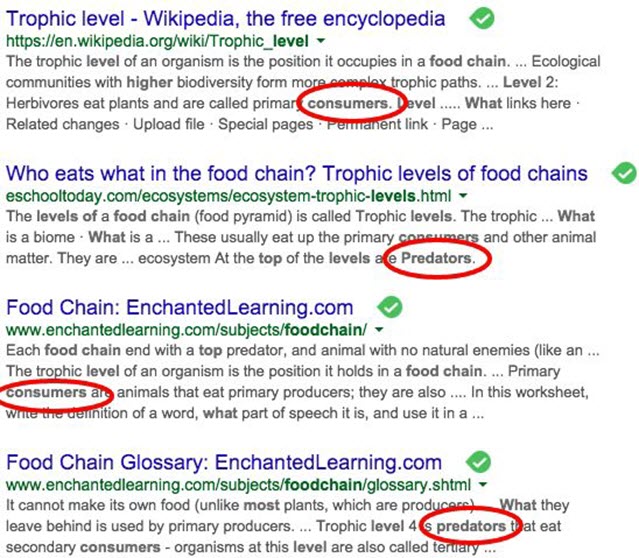
RankBrain represents one of the most intriguing changes in the world of SEO in the last year. Initially introduced in October 2015, it still remains a mystery for most experts. However, due to numerous studies performed since then, we are able to understand some basics features of this machine learning system.
Even though the name may imply otherwise, its priority is to provide more relevant results to searches that are completely new. After initial trials, people from Google realized that this system is actually great when dealing with ambiguous and poorly defined queries as well as natural language.
History of RankBrain
Have in mind that this is not Google’s first attempt to implement machine learning into their systems. Previously, we could see a similar technology in Google AdWords. Whenever RankBrain needs to assess a page, it focuses on the relevancy of the page itself, similarly to the Google AdWords Quality Score. Based on this score, it places different pages on different positions. Have in mind that the Google AdWords Quality Score doesn’t use external signals such as links. At this point, we are not certain whether RankBrain relies on links when judging content. Also, this system has some similarities with Word2Vec.
Word2Vec was based on a technology called skip-gram and a continuous bag of words. These two models allowed a system to establish a relationship between main words and all neighboring words. Also, Word2Vec was able to embed words into vectors which allowed them to be better understood.
RankBrain works similarly. It is pretty good at establishing semantic relationships and reading user intent. Based on this, we can surmise that RankBrain is at least partially based on Word2Vec technology.
Why was RankBrain introduced in the first place?
There are about 3 billion searches every day. Out of these 3 billion, 15 % are completely unique, never seen before. This amounts to 450 million. RankBrain was invented in order to process these unique queries and give a proper answer to them. The system does this by making an educated guess. Based on all previously accumulated information, it is able to make semantic connections and establish a user’s intent. But, in some cases, even with all its advanced technology backing it up, RankBrain can make a mistake and provide a final user with results that he is not looking for. If that is the case, it will provide a new set of results, hopefully satisfying the individual. This is why it is called machine learning. RankBrain is able to constantly refine its results and improve its suggestions.
Many people think that RankBrain is an artificial intelligence system. This is not the case. It is a machine learning system able to improve itself without any human interference. Through advancement, RankBrain could one day reach the state of “artificial intelligence,” but, there are still too many limitations for this to happen. Google product managers seem to have realized that RankBrain is excellent when dealing with ambiguous and long-tail keywords. Unlike before, when Google would focus on one word within the phrase, RankBrain is able to understand the meaning behind the words and give proper suggestions.
Relationship with Hummingbird
There are many misconceptions when it comes to Hummingbird and RankBrain. The latter is not an algorithm nor does it replace Hummingbird. In fact, these two are separate entities that are meant to work in conjunction. Experts refer to RankBrain as Hummingbird’s modification. Most likely, when processing a query, RankBrain finishes its part of the job and then Hummingbird additionally refines it.
Similarly to Word2Vec and Google AdWords, it is possible that Google took the best out of Hummingbird and implemented it within RankBrain. At this point, we can only speculate. The fact is that Google is very protective of its technology and all we can do at this point is notice similarities and differences between various systems.
RankBrain as the Wild Card of the Google Ranking System
Google has announced that RankBrain has become the number three ranking signal in the short period of its existence. But, there are many questions regarding it. Unlike other ranking signals (more than 200 of them), RankBrain most likely doesn’t represent a direct signal. Instead, it affects the way Google perceives queries and through it, search as a whole. RankBrain is not static. It is constantly improving and refining queries according to its own perception. Additionally, unlike other ranking signals, RankBrain is completely autonomous, able to work without any human interference.
But, keep in mind that this machine learning system still has limited use. It was primarily created in order to help users with unique queries. And to be fair, it is doing a great job. This means that RankBrain will not interfere if there are already valid suggestions available. Perhaps this is the reason why it is only at position three when it comes to ranking signal importance. We have learned that RankBrain can also help out with other long-tail queries, ambiguous keywords and slang. The system will not interfere when there is sufficient data for a query (at least the way we understand).
Nevertheless, this raises some questions. If RankBrain has managed to gain so much importance in so little time, it is quite possible that it will continue increasing in relevance eventually taking over common queries. This could change the whole SEO world.
How Does RankBrain Work?
As we mentioned previously, RankBrain has to embed words into vectors so it can use them properly. After that, all these vectors are put into the same virtual space. This includes all semantically related words that help the system establish relationships. Here is a good example:
In order to weigh the words properly, RankBrain has to understand correlations between them. Some of these semantically close keywords will have more impact on the query while other will have less impact. The importance of a keyword is established based on its distance from the main word. Related keywords that are far away from the main keyword have less importance on the query while those that are close to it, have more importance. Based on this, RankBrain gives priority to different content.
But, that is not all. This is only the part of the equation, the part which we know about. There is probably much more to it given that RankBrain is able to provide answers to some poorly defined questions and other queries that previously presented a problem.
How do you optimize for RankBrain?
At this point in time, there is no point in optimizing for it. Simply put, these queries have too small of a volume for us to bother with them. However, if one day RankBrain takes over a larger chunk of the queries, we should start considering it. Anyway, your main SEO strategy should remain the same; you have to have great content that will attract clicks and make visitors read it. If one day RankBrain becomes the dominant element of Google search, we will have to forget about link building. Instead of off-page, we will have to concentrate more on on-page optimization.
RankBrain works through trials and error. Even though the system performs its own analysis before presenting results to users, that doesn’t mean that users will be satisfied with suggestions. In order for your copy to be successful and to properly optimize it for RankBrain, you will have to focus on things such as click through rate, time spent on page and bounce rate.
According to our presumptions, these statistics are the best measure of visitor satisfaction with a page and at the same time, they send a strong signal to RankBrain regarding relevance. So, if you wish to optimize a page for RankBrain these are our suggestions:
- Create compelling titles and meta descriptions
- Write longer copy
- Include authoritative resources and studies within the text
- Be direct and focus on the user’s benefit
- Make your website responsive
WebCEO’s SEO Content Assistant can help optimize your content to match RankBrain’s preferences, guiding you in crafting relevant content that resonates with your audience and RankBrain’s understanding of relevance.
Have in mind that your article still has to be somewhat important to the query. If it isn’t, RankBrain will not suggest it to a user in the first place. But, if it does, try and make the best out of it, because RankBrain will notice how the customer reacts.
In the future, a visitor will be the one that determines whether a website lives or dies. In that regard, be sure to provide maximum value and the freshest, most relevant information.
Examples of RankBrain
Here is one of the more popular examples of RankBrain in action:
We used the query “What’s the title of the consumer at the highest level of a food chain”. This can be seen as quite an ambiguous query. You might think that Google would answer the query by presenting websites about production, shopping malls, food chains, human as a consumer, prices etc. However, this query is clearly connected to language commonly used in biology textbooks and specifically, the word “highest level” would clearly refer to “predators.” By using its database, RankBrain is able to make a good guess and return results connected to this particular topic.
As it turns out, RankBrain is also good at giving results based on our own browser history and previous searches. Let us use an example with Barack Obama.
In order to get Barack Obama’s age, we can type “How old is President Obama?” Google can easily recognize what we are looking for giving us data on Barack Obama. However, after this query, if we type “How old is his wife?” Google may understand that we are looking for data about Michelle Obama based on our history.
Conclusion
At this point, there are simply too many unknowns. We still cannot properly assess RankBrain or its true potential. It has shown great results so far but that doesn’t mean that Google will give it a greater role than it currently has. One thing is for sure. As always, Google is trying to improve the user experience and create new technologies that will help users get the most relevant results to their queries. In terms of SEO, things may or may not change in the future. Ultimately, it doesn’t matter. Even if they do change, Google will still be based on a certain technology, technology that can be exploited and optimized for. With this in mind, if you are working within SEO, there is no reason to be concerned.
For tracking how your site’s rankings are affected by RankBrain and other factors, use WebCEO’s Rank Tracking tool. Check your website positions on desktop, smartphone and tablet: the results may differ dramatically!
Additionally, to ensure your SEO strategies are comprehensive and up-to-date, explore WebCEO’s Online SEO tools to cover all your bases from on-page optimization to backlink analysis.






